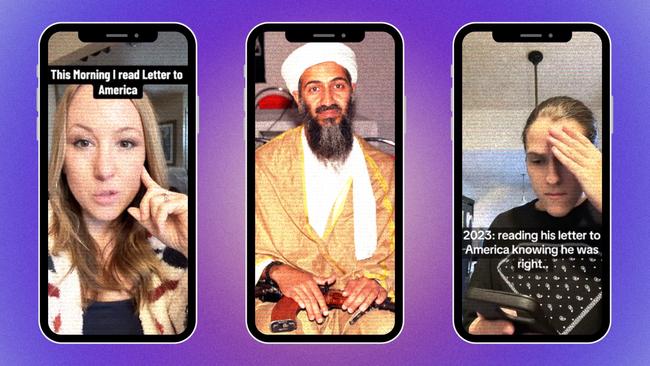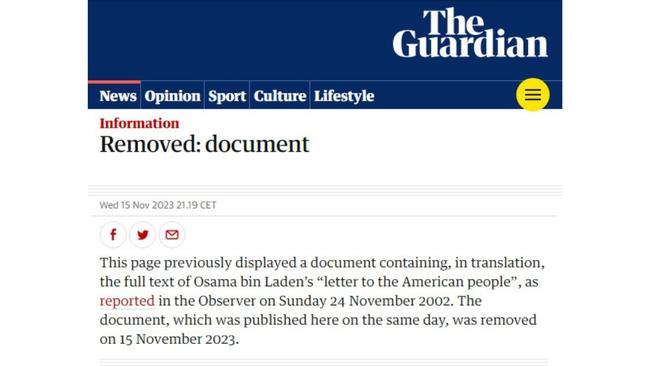
Users have been posting videos to the Chinese-owned app, urging their followers to read bin Laden’s 2002 “letter to America,” while suggesting he was on to something. “I will never look at this country the same,” one user said.
The videos racked up hundreds of thousands of views. TikTok said Thursday it is “aggressively removing” such content. “The number of videos on TikTok is small and reports of it trending on our platform are inaccurate,” the company said.
Then it blamed critics and journalists for noticing, saying that all the attention was driving more traffic to the posts. The British newspaper the Guardian unpublished its copy of the bin Laden letter, posted in 2002, because it was being “widely shared on social media without the full context.”
An archived version of the text shows bin Laden espousing Islamism; denouncing licentiousness, including “your President Clinton’s immoral acts”; calling AIDS “a Satanic American Invention”; and, of course, ranting about “the Jews.”
Over the past 24 hours, thousands of TikToks (at least) have been posted where people share how they just read Bin Laden’s infamous "Letter to America," in which he explained why he attacked the United States.
— Yashar Ali 😠(@yashar) November 16, 2023
The TikToks are from people of all ages, races, ethnicities, and… pic.twitter.com/EwjiGtFEE3
He says Muslims are “the inheritors of the real Torah that has not been changed,” which he claims makes them the rightful heirs to the land he calls Palestine: “The creation of Israel is a crime which must be erased.”
It should be a cause for contemplation on university campuses that some young Americans in 2023 can apparently read Osama bin Laden’s justifications for 9/11 and see a reflection of what they’ve been taught about “settler colonialism.”
To some degree, those who embarrass themselves on social media are merely publicising who they are in ways that could not have been revealed in an earlier age.
A serious question, though, is how and how much these platforms are shaping American education and political discourse. According to a Pew Research Center poll published this week, 14% of American adults “say they regularly get news from TikTok.”
That’s lower than the figure for Facebook (30%), but higher than Twitter (12%), despite the latter’s prominence among journalists. As expected, TikTok has the biggest following among those ages 18 to 29, about a third of whom reported regularly getting news on the social site.

There is plenty of controversy to go around with regard to how social sites present, moderate, downgrade, and delete user content. But TikTok is a particular case, given its Chinese ownership and the way it now speaks to America’s youth.
Would the U.S. have let the Soviet Union buy MTV in the 1980s? How can Americans trust that TikTok is really trying in good faith to stop its platform from being used to spread ideological poison?
The Wall Street Journal




TikTok’s hot new social-media influencer is … Osama bin Laden. Yes, the terrorist who plotted 9/11 went viral this week, and not in a good way.